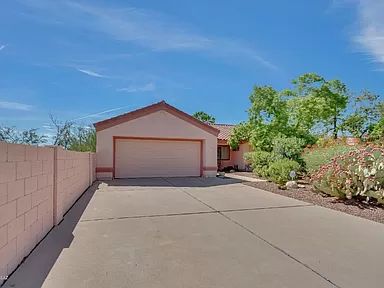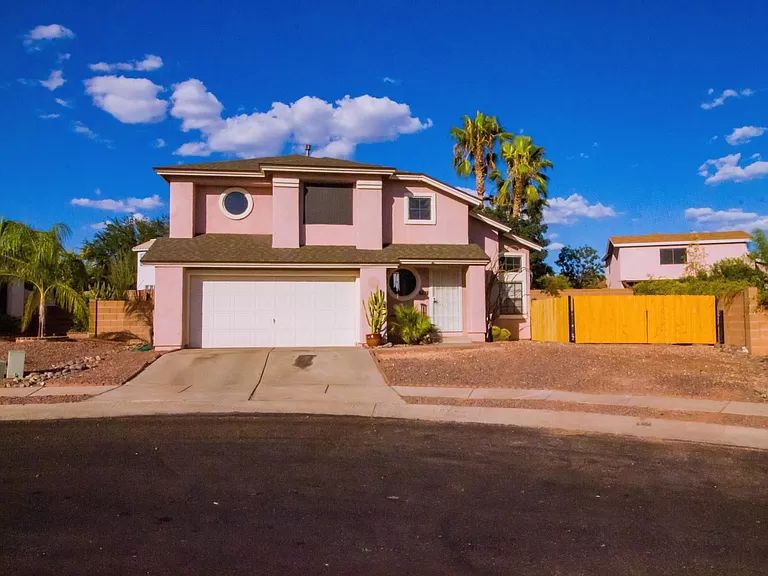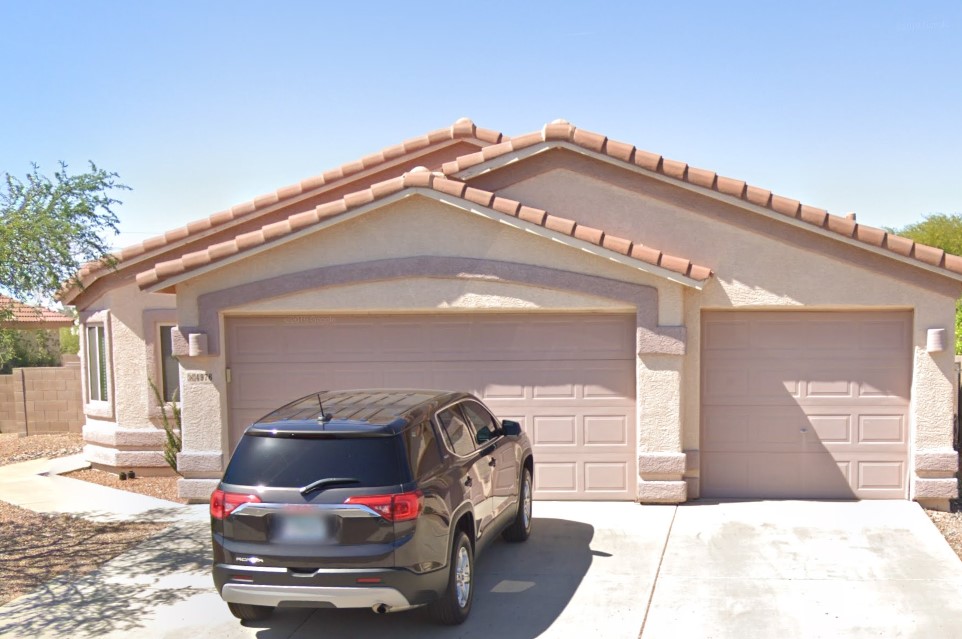Can Not Open Up Garage Door - Step-by-Step Fix Guide
Is Your Garage Door Stuck? Below's What to Do First
When your garage door will not open up, begin with these necessary safety checks prior to attempting any type of repair work. Initially, ensure nobody is standing near the door and that vehicles are clear of the opening. Seek apparent signs of damages like busted panels, curved tracks, or hanging cable televisions. If you see a snapped springtime or severely damaged parts, quit right away and call an expert—-- these repair services require specific devices and knowledge to manage securely.

Check These 6 Things Prior To Calling an Expert
Prior to thinking you require expensive repair services, run through this fast analysis checklist that solves most garage door troubles:
-
Source of power: Confirm the opener is plugged in and the outlet is functioning
-
Remote batteries: Change dead batteries in your remote control
-
Hands-on lock: Check if a person accidentally engaged the hands-on lock
-
Blockages: Look for debris blocking the door's path or sensing units
-
Emergency situation launch: Ensure the red emergency situation cable hasn't been pulled
-
Breaker: Verify the garage circuit hasn't tripped
These simple checks solve about 70% of garage door issues without calling for expert intervention.
10 Usual Reasons Your Garage Door Won't Open Up
Recognizing why your garage door opener isn't functioning aids you choose the right solution. Below are the most frequent reasons home owners experience:
Dead remote batteries represent the most basic solution—-- when batteries die, the remote can't send out signals to the opener. Power outages or tripped breakers cut electrical energy to the motor. Busted springtimes prevent the door from raising correctly and call for immediate specialist focus. Sensor misalignment reasons safety systems to obstruct door procedure. Track blockages stop rollers from relocating smoothly. Motor overload triggers automated shutoffs when the opener identifies resistance. Limit switch problems confuse the here opener regarding door position. Wire damages interrupts the training mechanism. Weather-related concerns impact door activity during extreme temperature levels. Component wear from age gradually decreases system performance.
Issue # 1: Dead Push-button Control Batteries
When your wall surface button functions but your remote doesn't, dead batteries are generally the culprit. Many garage door remotes utilize either 3-volt lithium or 12-volt alkaline batteries. Get rid of the back cover of your remote and examine the battery type. Replace with fresh batteries and evaluate the remote. If it still does not work, you may require to reprogram it to your opener. Consult your opener's manual for particular reprogramming instructions, as the procedure varies by producer.
Trouble # 2: Power Supply Issues
Garage door power problems commonly originate from loosened connections or stumbled circuits. Inspect that the opener is securely plugged into its outlet—-- resonance can loosen links over time. Examine the electrical outlet with another device to confirm it's working. Examine your home's breaker box for stumbled circuits, especially if you've experienced storms or power changes. GFCI outlets might have tripped and need resetting. If the opener has power yet won't react, the problem likely lies elsewhere in the system.
Issue # 3: Broken or Damaged Springs
Broken garage door springs are among the most dangerous components to manage. If you hear a loud bang from your garage or notice the door really feels incredibly hefty when trying to lift by hand, a spring has actually likely snapped. Torsion springtimes run flat above the door, while extension springs remain on either side. Never ever try spring fixings on your own—-- these elements keep tremendous tension that can cause major injury or fatality. Expert substitute typically costs $150-$300 yet guarantees your safety.
Trouble # 4: Obstructed Safety Sensors
Modern garage doors feature safety and security sensors that avoid closure when things are identified. These sensors can stop the door from opening if they're dirty, misaligned, or blocked by debris. Clean sensing unit lenses with a soft towel and ensure absolutely nothing blocks the undetectable light beam in between them. Examine that sensors are properly aligned—-- the majority of have sign lights that reveal link standing. Sensor issues often settle with easy cleaning and modification.
Issue # 5: Track Obstructions or Damage
Garage door tracks overview rollers as the door moves up and down. Dirt, debris, old grease, or small items can jam the system. Examine tracks visually and eliminate any blockages with a brush or fabric. Search for dents, flexes, or bending that can restrain smooth operation. Small track modifications are possible for helpful home owners, but substantial damages requires specialist fixing to avoid further issues or safety hazards.
Problem # 6: Garage Door Opener Motor Issues
When the garage door motor runs however the door doesn't move, a number of issues could be liable. The electric motor may be overwhelmed and shutting off as a precaution. Gear wear, specifically in older units, can protect against correct operation. Chain or belt drive troubles affect power transmission. If you listen to unusual grinding, clicking, or humming sounds, stop utilizing the opener quickly. Motor repair work typically cost more than replacement, particularly for units over ten years old.
Step-by-Step DIY Troubleshooting Guide
Follow this systematic strategy to garage door troubleshooting while focusing on safety and security throughout the process:
Step 1: Check the wall surface button first. If it works but the remote doesn't, focus on remote concerns. If neither works, examine power supply.
Step 2: Check out the manual release cable. If it's been pulled, the opener is disengaged from the door. Press the trolley back to reconnect.
Step 3: By hand examine the door by disengaging the opener and trying to raise the door by hand. It must relocate efficiently and remain in location when half-open.
Step 4: Inspect noticeable elements for damage, paying unique attention to springs, cords, and tracks.
Tip 5: Inspect all safety features consisting of sensing units, limit buttons, and auto-reverse functions.
Step 6: Examination various controls (remote, wall surface button, keypad) to isolate the trouble resource.
Constantly use shatterproof glass and job handwear covers when carrying out assessments, and never ever attempt repair work on springs or high-tension parts.
When to Call a Specialist vs. do it yourself Solutions

Recognizing when to call a garage door specialist versus attempting DIY fixings secures both your safety and security and your wallet. Take care of these concerns on your own: dead remote batteries, power supply problems, small track cleansing, sensor cleaning and positioning, and standard lubrication.
Never try these repair services yourself: springtime replacement or modification, wire repair services, significant track adjustment, electric wiring concerns, opener electric motor replacement, or any kind of fixing entailing high-tension components. Expert technicians have specialized tools, training, and insurance policy to manage unsafe repair work securely.
Take into consideration repair work prices versus replacement expenses, especially for doors over 15 years old. Modern garage doors offer much better security functions, energy performance, and dependability than older versions.
Emergency Situation Garage Door Solutions
When you're stuck with a garage door that will not open and need prompt gain access to, follow these emergency situation procedures:
Handbook Procedure: Pull the red emergency situation release cord to disengage the opener. This enables hands-on procedure however calls for proper method to stay clear of injury. Raise the door gradually and equally, utilizing leg muscle mass rather than your back. Many property doors weigh 100-150 pounds, making them workable for many adults.
Momentary Fixes: If the door opens manually yet won't keep up, prop it open with sawhorses or clamps—-- never ever use your body or lorries as supports. For doors that will not shut completely, ensure the opening is safeguarded if you have to leave.
Emergency Service: Many garage door business supply 24/7 emergency situation solution for situations entailing protection issues, caught lorries, or full system failures. While more pricey than routine solution calls, emergency repair work offer instant options when needed most.
Safety Caution: What NOT to Do
Garage door safety and security needs understanding hazardous fixings that need to never ever be attempted by home owners:
Never ever attempt to repair springtimes—-- they save enough energy to create fatal injuries when they snap or are improperly handled. Don't require a stuck door—-- this can damage the opener, tracks, or door panels, creating extra pricey troubles. Stay clear of bypassing safety functions—-- sensing units and auto-reverse mechanisms avoid major injuries and property damage.
Do not disregard unusual sounds—-- grinding, scraping, or banging noises show problems that intensify with time. Never ever make use of the door if cable televisions are frayed or broken—-- the door can drop all of a sudden. Don't try electric repair services unless you're a certified electrical contractor—-- garage door openers utilize both 120V home existing and low-voltage control circuits.

Preventative Maintenance to Avoid Future Issues
Regular garage door maintenance avoids most common issues and extends system life expectancy substantially:
Month-to-month Tasks: Visual examination of all elements, examining auto-reverse security attributes, examining and tightening equipment, and cleaning tracks and sensors.
Quarterly Jobs: Lubing all moving parts with proper garage door lube, screening handbook procedure, and inspecting weather sealing.
Yearly Tasks: Professional evaluation and tune-up, spring adjustment if needed, and opener maintenance including belt or chain change.
Seasonal Tasks: Getting ready for climate extremes, examining insulation, and adjusting opener settings for temperature adjustments.
Constant maintenance costs much less than emergency fixings and guarantees reputable procedure year-round.
Garage Door Won't Open Frequently Asked Questions
Why won't my garage door open with the remote however deals with the wall surface button?
This typically suggests dead remote batteries, signal disturbance, or the need to reprogram the remote. Examine batteries initially, after that consult your opener guidebook for reprogramming directions.
Can I by hand open my garage door if the power is out?
Yes, pull the red emergency release cord to disengage the opener, after that lift the door by hand. Be planned for the door's full weight and lift with appropriate technique to stay clear of injury.
Exactly how do I know if my garage door springtime is damaged?
Signs include a loud bang from the garage, the door sensation very hefty when lifting by hand, visible voids in the springtime coils, or the door just opening up a couple of inches prior to quiting.
Is it secure to utilize my garage door if it will not open all the way?
No, partial operation shows mechanical troubles that could aggravate all of a sudden. Stop making use of the door and have it examined by a professional to avoid further damages or injury.
What should I do if my garage door opens but will not close?
Check safety and security sensing units for blockages or imbalance, examine the tracks for debris, and examine the auto-reverse function. If these do not fix the problem, speak with an expert.
Just how much does it cost to take care of a garage door that won't open?
Costs vary extensively depending on the problem: battery replacement ($5-$10), specialist diagnosis ($50-$100), spring replacement ($150-$300), or opener replacement ($200-$500).
Can weather impact my garage door's capacity to open up?
Yes, extreme cold can thicken lubricants and impact metal parts, while warm can create expansion issues. A lot of issues deal with as temperature levels stabilize, yet persistent issues might require professional interest.
Why does my garage door open up a couple of inches then quit?
This generally suggests damaged springs, limit button troubles, or track blockages. The opener's security features quit procedure when resistance is found, protecting against damages to the motor or door.
Get Professional Assist for Facility Concerns
When DIY repairing doesn't fix your garage door problems, professional specialists provide the knowledge and devices needed for risk-free, long lasting repair services. Qualified experts detect issues accurately, make use of manufacturer-approved components, and offer guarantees on their work.
Specialist services consist of: thorough system inspections, spring and cable television replacement, opener repair service and replacement, track positioning and substitute, electrical troubleshooting, and emergency service phone calls.
What to expect: upfront prices, certified and insured technicians, same-day solution for many repairs, and follow-up upkeep referrals.
A lot of garage door firms supply complimentary price quotes for major repair services and can give prompt remedies for immediate issues influencing home security or lorry accessibility.
Obtaining Your Garage Door Working Again
A garage door that will not open does not have to destroy your day or damage your budget. Start with easy troubleshooting actions like checking power, changing batteries, and taking a look at for evident obstructions. Lots of problems have quick DIY services that recover normal operation within mins.
Nonetheless, recognize when expert aid is essential—-- especially for spring-related concerns, electrical problems, or complicated mechanical failings. Attempting hazardous fixings on your own runs the risk of severe injury and typically develops more pricey issues.
Routine upkeep avoids most garage door issues and guarantees trusted procedure for several years to come. When troubles do happen, address them promptly to avoid more costly fixings and preserve your home's protection and comfort. Whether you require a basic battery substitute or total system overhaul, remedies exist to obtain your garage door working efficiently once again.
Eddie's Garage Door Service
5505 N La Canada Dr, Tucson, AZ 85704
(520) 965-8259
www.EddiesGarageDoorService.com